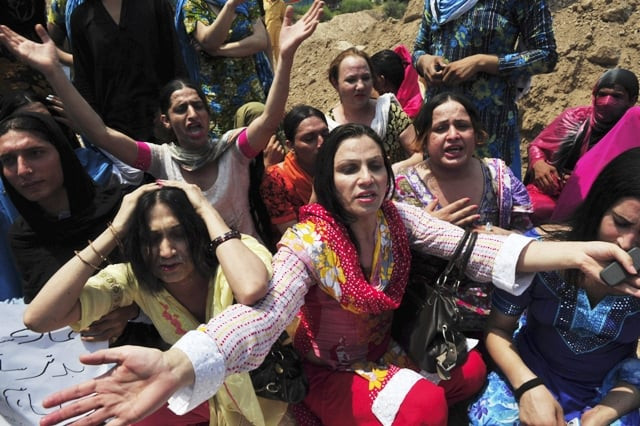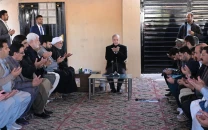For the transgender, there is no place for refuge
There are no figures on the affected and displaced people from this community.

Saniya lost her house in the floods and has no place to go for refuge. The 30-year-old transgender is not welcome at any relief camp because other people are not ready to live with her.
It’s not only about being unable to find shelter. Saniya does not have access to relief aid because she does not have a national identity card, she told The Express Tribune by telephone, adding that, “Besides, normal people are considered more genuine.”
She finally found refuge in a rented room in Madeji, Sindh shared by two other people. Before the monsoon rains that led to floods in Sindh, she had a three-room house in Wazirabad, Shikarpur. She says she is one of many people from the community that have been affected by the disaster. “There are several others languishing silently in pain.”Business has also gone down because most people I used to entertain have been displaced, Saniya adds.
Roshni Helpline Trust President Mohammad Ali says the transgender community is more socially and economically vulnerable. They are not welcomed in relief camps and do not have easy access to services, which may be available to other internally displaced persons (IDPs). National identity cards (which many people from the transgender community still do not have) are required for accessing relief services such as Watan Cards, shelter and non-food items, Ali says.
There are about 16,000 to 17,000 transgender people settled in Sindh. However, neither the government nor any NGO is maintaining figures on the affected and displaced people from this community.
The Gender Interactive Alliance (GIA), a Karachi-based organisation that fights for the rights of this marginalised community, reported it has received several appeals for aid so far.
Bindya Rana, president of GIA, said that about 25 people have reported complete loss of property and homes in the floods this year. These numbers of course are limited to those who know about the NGO and can afford to reach out, Rana says, adding “We have a ‘dera’ in almost every city and there are a lot of other cases that are unreported.”
Published in The Express Tribune, October 22nd, 2011.



















COMMENTS
Comments are moderated and generally will be posted if they are on-topic and not abusive.
For more information, please see our Comments FAQ